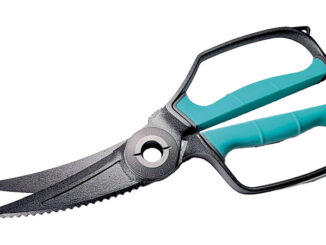
This is the month when trophy trout go crazy on Calcasieu Lake.
“It is easier for a camel to go through the eye of a needle than for a rich man to enter the kingdom of God.” — Mark 10:25
If the above is true — and far be it from me to question the validity of anything in the Bible — then all of us hunters ought to be on the fast-track to the Great Beyond.
It’s almost impossible these days to be both rich and a hunter. If you’re a member of the latter category, you won’t for very long fit into the former.
That’s because the sport of hunting is getting more and more expensive, and not surprisingly, as a result, the number of participants in this truly great American pastime is dwindling.
Over a span of three decades, basic hunting license sales in Louisiana have fallen precipitously from a high of 358,000 in 1978-79 to 172,000 in 2005-06.
The numbers are nearly as grim in other states. Just two examples: Pennsylvania sold 1.3 million hunting licenses in 1981, but only 946,000 in 2006, and West Virginia sales went from 187,000 in 1997 to 155,000 in 2006.
Part of the reason, without question, is the cost of hunting. Just a few decades ago, a man could take his son to a patch of woods behind his house and shoot squirrels and rabbits without any thought to who owned the woods or what his trespassing fine might be.
That boy would likely return to those same woods with a band of comrades during his teen years, and feel that familiar thumping in his chest as he looked down the barrel of his over-under at a completely clueless squirrel that was enjoying its breakfast.
Today, of course, everything is leased up, and if a man wants to take his boy hunting, he’ll have to go to the hip.
And hunting leases are anything but cheap.
Not only that, but with the increased urbanization of America, that man and his boy won’t likely be hunting woods behind their house. If they live anywhere near a city, their lease may be many tens or even hundreds of miles from their front door. They’ll have to travel to get there, and gas prices being what they are these days, that can also be a limiting factor.
Some people may see this decline in hunter numbers as a good thing. After all, who wants to see more hunters on their favorite wildlife management area?
But consider this: As our numbers dwindle, we become a less-important voting bloc, and laws that limit our outdoor freedoms will begin to gain overwhelming support in state legislatures.
As it stands now, we have some power and are an attractive group of voters. That’s why George W. Bush was sure to take the media along during a dove hunt in 1994 (even though he screwed up and shot a killdeer), John Kerry went on a goose trip in 2004 (even though he had an anti-gun voting record) and Hillary Clinton talked very recently about going hunting as a youngster and being teased by the men who brought her.
But that will change as the numbers continue to slide.
Obviously, we need more hunters in the sport, not fewer. Consequently, the Bush administration should reconsider its proposal to raise the price of a federal duck stamp to $25 from the current $15, a whopping 67-percent increase.
The measure has gotten some support from conservation circles, who know the extra money will help with habitat protection and restoration on the breeding grounds.
But it’s another straw thrown on that camel’s back, and at this rate, he’ll never get through the eye of the needle.


